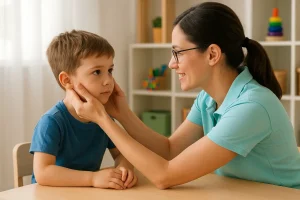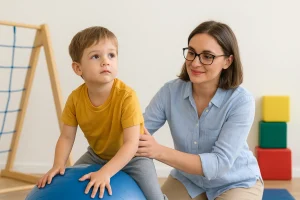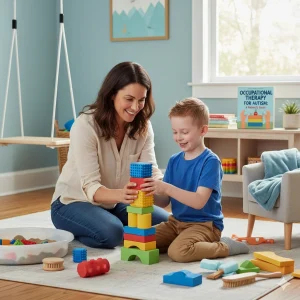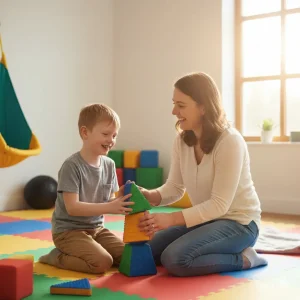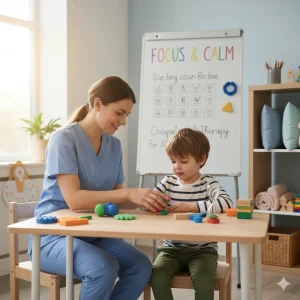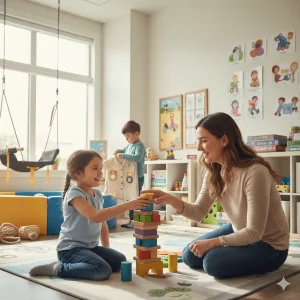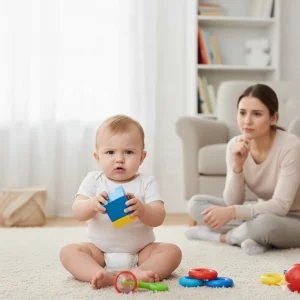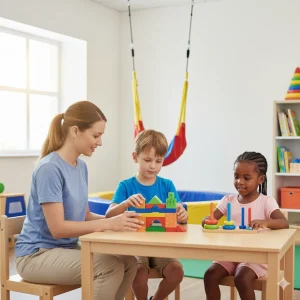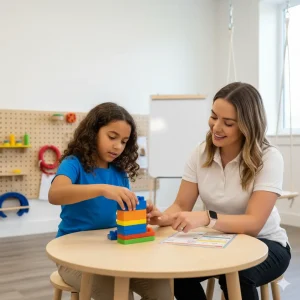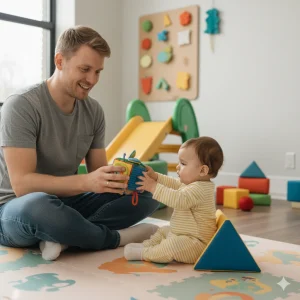10 Game Changing Toys for Occupational Therapy
By Prapoorna M
Last Updated: March 2, 2024
Welcome to our latest exploration into the world of developmental growth for children, especially focusing on the pivotal role of occupational therapy. As parents, caregivers, or therapists, understanding the profound impact the right toys can have on a child’s development is crucial. These aren’t just playthings; they’re vital tools that support the enhancement of fine and gross motor skills, sensory processing, and cognitive abilities, paving the way for a brighter, more independent future for our little ones.
Occupational therapy plays a unique role in fostering essential life skills. Through targeted play, it helps children overcome obstacles to their daily activities, making each day a little easier and a lot more enjoyable. But with the vast array of toys out there, how do you choose the ones that will truly make a difference?
That’s where we come in. This article is designed to guide you through selecting the “10 Game-Changing Toys for Occupational Therapy.” Each toy we’re about to introduce has been hand-picked for its ability to engage, inspire, and develop crucial skills in young learners.
Understanding Occupational Therapy Toys
The Role of Toys in Occupational Therapy
Toys, in the world of occupational therapy, are far more than mere playthings. They serve as crucial tools in the development of children, helping them to unlock their potential in ways that are engaging and enjoyable. Through the lens of occupational therapy, toys are instrumental in enhancing motor skills, sensory processing, and cognitive abilities. They offer children a platform to explore their environment, understand the relationship between cause and effect, and develop the necessary skills for daily living tasks.
Imagine a simple set of building blocks. While it appears to be a basic toy, it’s a powerhouse of developmental benefits. As children stack these blocks, they’re not just building towers; they’re enhancing their fine motor skills, spatial awareness, and problem-solving abilities. Similarly, a textured ball isn’t just for throwing or catching; it’s a sensory tool that stimulates touch, enhances hand-eye coordination, and teaches the concepts of gravity and force.
Go through our Best Autism Therapy in India
Choosing the Right Toys
Selecting the right toys for occupational therapy isn’t just about picking the most colorful or the most popular ones. It involves understanding the unique needs of each child and how a toy can cater to those needs. Here are some tips to guide you in choosing the right toys:
- Identify Developmental Goals: Start by understanding the specific areas your child needs to develop. Is it fine motor skills, gross motor skills, sensory processing, or cognitive abilities? This understanding will guide your toy selection process.
- Safety First: Always consider the safety of the toys. Look for non-toxic materials, check for small parts that could be a choking hazard for younger children, and ensure the toy is age-appropriate.
- Versatility and Adaptability: Choose toys that can grow with your child. Toys that offer different levels of complexity or can be used in various ways are excellent for adapting to your child’s developmental pace.
- Engagement Factor: A toy should be engaging enough to capture your child’s interest over time. It should be fun, stimulating, and offer a sense of achievement.
- Therapeutic Value: Consider how the toy can be used therapeutically. Does it support sensory integration? Can it enhance coordination and balance? How does it promote problem-solving skills?
For more insights, check out our guide on home-based occupational therapy activities.
The 10 Must-Have Occupational Therapy Toys
Embarking on a journey through occupational therapy, selecting the right tools becomes pivotal for nurturing a child’s development. These 10 toys are not just playthings; they are gateways to enhancing a child’s sensory, motor, and cognitive skills. Let’s explore each toy and its unique benefits:
Understanding the specific needs of your child can be complex. Our online counselling services offer personalized guidance.
Sensory Bins
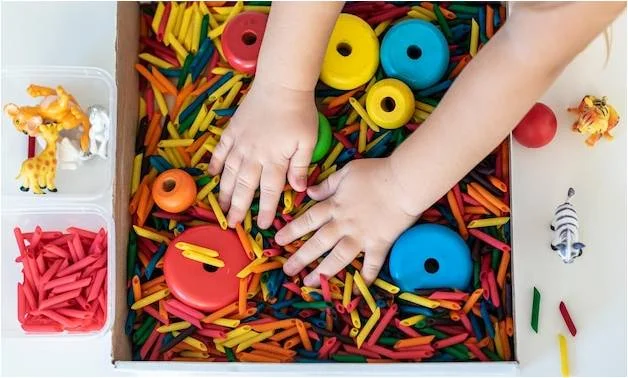
Developmental focus: Sensory exploration and fine motor skills.
Sensory bins are filled with a variety of textures and objects that stimulate a child’s senses, encouraging exploration and discovery. By digging, scooping, and sorting, children develop fine motor skills and sensory awareness, which are critical for daily tasks such as dressing and eating.
Learn more about sensory play and its benefits for children with autism at our autism treatment centre.
Building Blocks/Magnetic Tiles
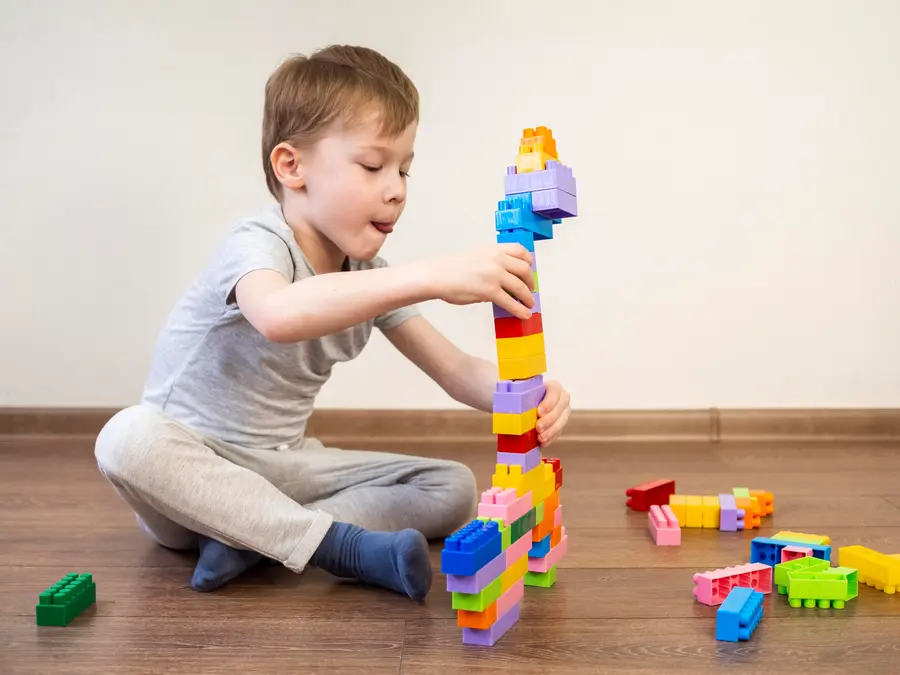
Developmental focus: Motor skills, creativity, and spatial awareness.
These versatile toys are fundamental for budding architects and dreamers alike. As children stack, balance, and create with blocks or magnetic tiles, they’re not just building structures; they’re enhancing their motor skills and understanding of spatial relationships, laying the foundation for problem-solving and mathematical thinking.
Therapy Putty
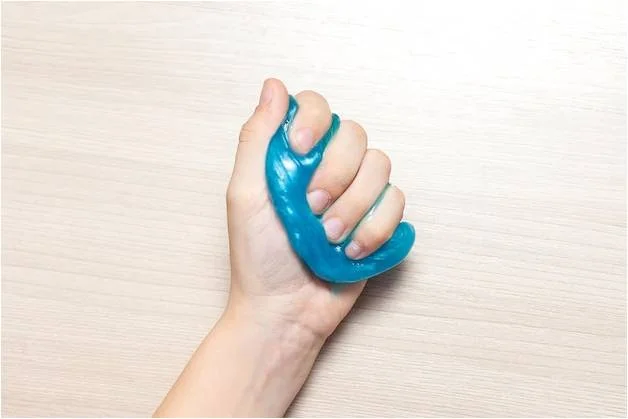
Developmental focus: Hand strength and fine motor coordination.
Therapy putty offers a fun and effective way to strengthen hand muscles and improve dexterity. Squeezing, stretching, and manipulating the putty helps children develop the fine motor skills necessary for writing, buttoning, and other daily activities.
Balance Boards
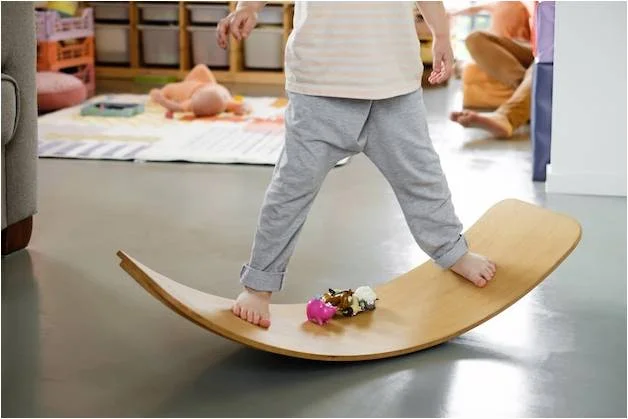
Developmental focus: Gross motor skills, balance, and coordination.
Balance boards challenge and engage core muscles, promoting balance and coordination. As children strive to maintain stability, they enhance their gross motor skills, which are crucial for activities like walking, running, and sports.
Puzzle Games
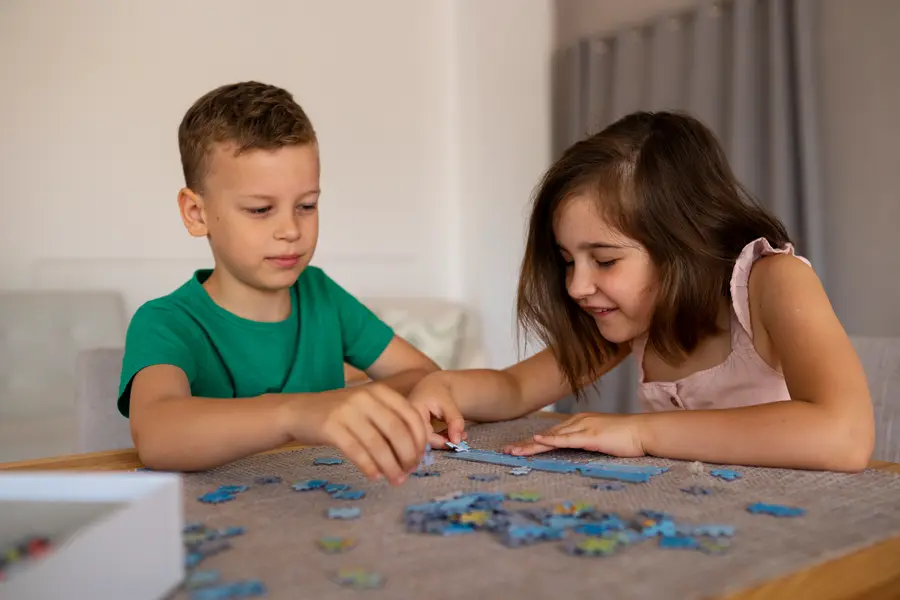
Developmental focus: Problem-solving, hand-eye coordination, and cognitive skills.
Puzzles are a timeless tool for cognitive development. Matching shapes and completing images fosters problem-solving abilities, hand-eye coordination, and cognitive skills, encouraging children to think critically and sequence logically.
Craft and Bead Kits
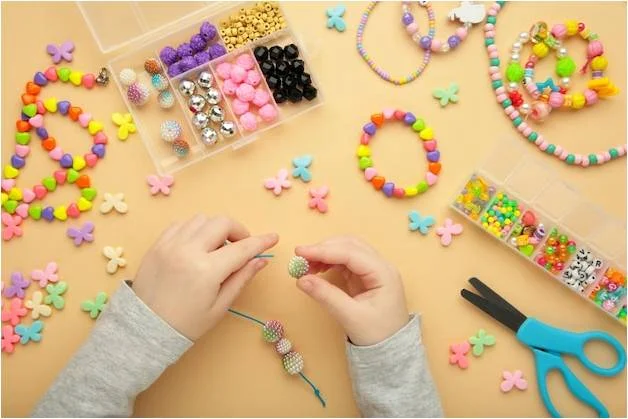
Developmental focus: Fine motor skills, planning, and sequencing.
Engaging in crafts allows children to express their creativity while honing fine motor skills. Beading, cutting, and gluing improve hand-eye coordination and planning skills, which are essential for academic success and daily living.
Interactive Electronic Games
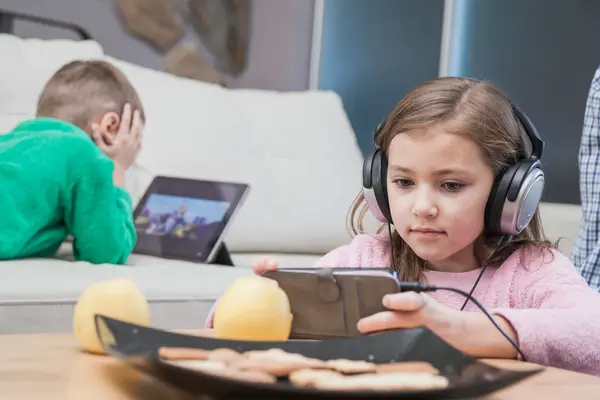
Developmental focus: Cognitive development, attention, and interactive play.
In the digital age, interactive games can support cognitive development and sustain attention. These games offer dynamic problem-solving challenges, enhancing memory, logic, and strategic thinking in a fun, engaging format.
Sensory Swings or Hammocks

Developmental focus: Sensory integration, balance, and self-regulation.
Sensory swings provide a unique opportunity for vestibular input, which is critical for sensory integration. The rhythmic motion helps regulate the sensory system, improving balance and offering a comforting space for children to relax and focus.
Handwriting Tools and Toys
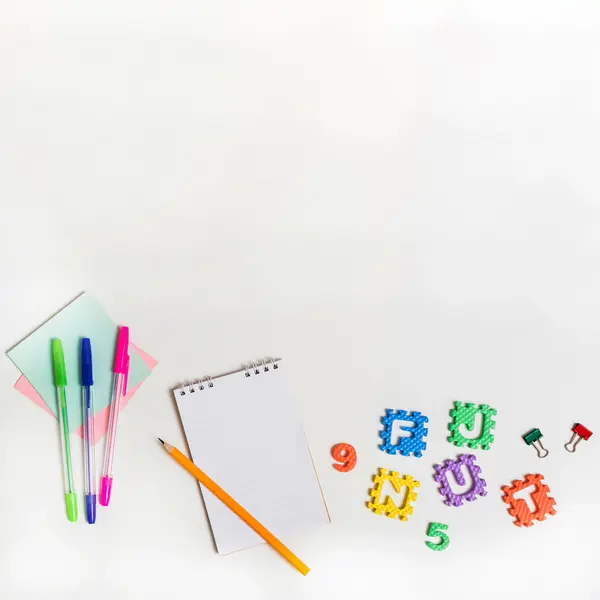
Developmental focus: Pre-writing skills, grip strength, and control.
Specialized tools and toys designed to enhance handwriting skills can make a significant difference in a child’s ability to write. They encourage proper grip, increase control, and build the strength needed for writing tasks, paving the way for academic success.
Discover effective techniques with our tips to develop good learning habits.
Board Games for Social Skills
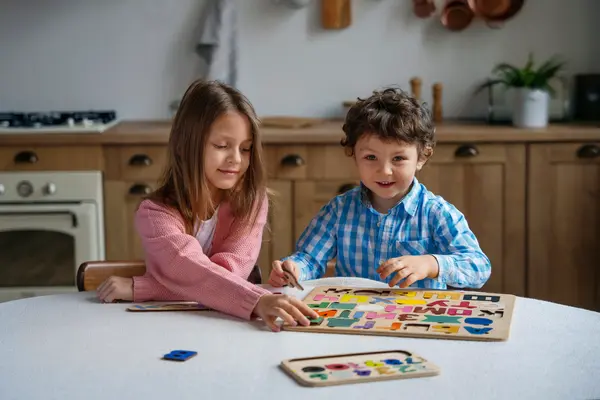
Developmental focus: Turn-taking, patience, and social interaction.
Board games are not just for fun; they’re a platform for learning social skills. Through gameplay, children learn the importance of turn-taking, patience, interacting with peers, foundational skills for building relationships and navigating social settings.
Read more about anger management for children and how games can play a part.
Comparative Analysis of OT Toys by Developmental Focus
| Toy Name | Developmental Focus | Age Range | Safety Features |
|---|---|---|---|
| Sensory Bins | Sensory exploration, fine motor skills | 1-8 years | Non-toxic materials, choke-proof small parts |
| Building Blocks/Magnetic Tiles | Motor skills, creativity, spatial awareness | 3+ years | Large pieces to prevent choking, non-toxic |
| Therapy Putty | Hand strength, fine motor coordination | 3+ years | Non-toxic, allergen-free |
| Balance Boards | Gross motor skills, balance, coordination | 3+ years | Non-slip surface, durable construction |
| Puzzle Games | Problem-solving, hand-eye coordination, cognitive skills | 2+ years | Smooth edges, non-toxic |
| Craft and Bead Kits | Fine motor skills, planning, sequencing | 4+ years | Non-toxic materials, safe scissors |
| Interactive Electronic Games | Cognitive development, attention, interactive play | Varies by game | Parental controls, durable design |
| Sensory Swings or Hammocks | Sensory integration, balance, self-regulation | All ages (with appropriate size) | Secure installation, weight limit specified |
| Handwriting Tools and Toys | Pre-writing skills, grip strength, control | 3+ years | Ergonomic designs, non-toxic materials |
| Board Games for Social Skills | Turn-taking, patience, social interaction | 3+ years | Durable pieces, non-toxic materials |
Incorporating Toys into Daily Routines
Integrating therapeutic toys into your child’s daily routine can significantly enhance their developmental journey. Here are some strategies for parents and therapists to seamlessly incorporate these toys into play and therapy sessions, ensuring maximum engagement and benefit:
- Create a Schedule: Children thrive on routine. Designate specific times for play with these toys, ensuring a balance between structured therapy sessions and free play. This regularity helps children anticipate and prepare for playtime, making it a part of their daily routine.
- Involve the Child in Selection: Allow children to choose which toy they want to play with during scheduled times. This choice gives them a sense of control and increases their interest and engagement in the activity.
- Set Clear Goals: Before beginning, discuss what you aim to achieve with each toy. Whether it’s improving grip strength with therapy putty or enhancing problem-solving skills with puzzle games, setting goals helps track progress and keeps the child motivated.
- Incorporate Into Daily Tasks: Find creative ways to include these toys in daily activities. Use sensory bins during bath time, balance boards during TV time, or craft kits for weekend projects. This approach helps children apply the skills learned in therapy to real-life situations.
- Make It Social: Encourage playdates with peers where your child can share their therapeutic toys. This social interaction is crucial for developing communication and social skills, plus it makes learning fun.
- Celebrate Achievements: Acknowledge and celebrate every small victory. This positive reinforcement motivates children to keep pushing their boundaries and enjoy their developmental journey.
For families navigating the challenges of autism, integrating therapeutic toys into daily routines can be transformative. See our section on autism basics for more information.
Weekly Play Schedule Incorporating OT Toys
| Day of the Week | Morning Activity | Afternoon Activity | Evening Activity |
|---|---|---|---|
| Monday | Sensory Bins exploration | Puzzle Games for a cognitive boost | Board Games for family night |
| Tuesday | Craft and Bead Kits project | Therapy Putty exercises | Reading time with Interactive Games |
| Wednesday | Free play with Building Blocks/Tiles | Balance Board challenges | Sensory Swing relaxation time |
| Thursday | Handwriting Tools practice | Sensory Bins for creative play | Puzzle Games for a quiet evening |
| Friday | Therapy Putty morning warm-up | Craft and Bead Kits for fine motor | Movie night with Interactive Games |
| Saturday | Outdoor play with Balance Boards | Sensory Swing fun | Family Board Games night |
| Sunday | Building Blocks/Tiles Construction | Handwriting Tools for art creation | Evening craft with Bead Kits |
WellnessHub’s Commitment to Child Development
At WellnessHub, we understand that every child’s developmental journey is unique. Our commitment to supporting this journey goes beyond just offering resources and tips; we aim to be a partner for parents and therapists in navigating the complexities of developmental growth. With an extensive repository of expert advice, insightful articles, and a curated selection of therapeutic toys and tools, WellnessHub is dedicated to empowering parents and professionals with the knowledge and resources needed to make a tangible difference in the lives of children.
Our approach is holistic, focusing on the physical, emotional, and cognitive aspects of development. We believe in the power of play as a fundamental element of growth and learning. By providing access to the latest research, innovative toys, and practical strategies, WellnessHub aims to be your trusted ally in fostering a nurturing and supportive environment for every child to thrive.
As we continue to expand our offerings and resources, remember that WellnessHub is more than a platform; it’s a community of like-minded individuals committed to making a positive impact on child development. Together, we can navigate the challenges and celebrate the milestones, ensuring that every child has the opportunity to reach their fullest potential.
For additional tips on enhancing your child’s learning skills, explore our blog on learning techniques for students.
Conclusion
Incorporating these “10 Game-Changing Toys for Occupational Therapy” into your child’s daily life offers more than just developmental benefits; it provides moments of joy, discovery, and achievement. By selecting toys that align with therapeutic goals and engaging in play that stimulates growth, parents and caregivers can actively participate in their child’s journey toward independence and mastery of essential life skills. It’s about making every playtime count, turning challenges into opportunities for learning, and ensuring that our children are equipped with the tools they need for success.
At WellnessHub, we stand committed to supporting families and therapists on this journey, offering a wealth of resources, expert advice, and a curated selection of toys that make a difference. We understand the importance of choosing the right tools for your child’s developmental journey and are here to guide you every step of the way. Together, we can create a nurturing environment that celebrates every milestone, big or small, and paves the way for a future filled with possibilities. Visit us at WellnessHub to discover how we can be your partner in fostering a world of growth and discovery for your child.
Frequently Asked Questions
1. What are the best toys for occupational therapy?
The best toys for occupational therapy include sensory bins for sensory exploration, building blocks and magnetic tiles for motor skills and creativity, therapy putty for hand strength, balance boards for gross motor skills, puzzle games for cognitive skills, craft and bead kits for fine motor skills, interactive electronic games for cognitive development, sensory swings for sensory integration, handwriting tools for pre-writing skills, and board games for social skills development.
2. How do occupational therapy toys help in child development?
Occupational therapy toys are designed to support a wide range of developmental needs, including fine and gross motor skills, sensory processing, cognitive abilities, and social interactions. They provide engaging, hands-on ways for children to learn and practice new skills, improve their ability to perform daily activities and enhance their overall development.
3. Can occupational therapy toys be used at home?
Yes, occupational therapy toys can be easily incorporated into a child’s daily routine at home. Parents and caregivers can use these toys to create a supportive and stimulating environment that encourages learning and development through play. It’s important to choose toys that align with the child’s specific developmental needs and interests.
4. How do I choose the right occupational therapy toys for my child?
To choose the right occupational therapy toys for your child, consider their current developmental stage, interests, and any specific skills they need to develop. Look for toys that are safe, engaging, and versatile enough to grow with your child. It’s also helpful to consult with an occupational therapist for personalized recommendations based on your child’s unique needs.
5. Are there any specific brands that specialize in occupational therapy toys?
While many brands offer toys that are beneficial for developmental growth, some specialize in products specifically designed for therapeutic use. When selecting toys, focus less on the brand and more on the toy’s ability to meet your child’s developmental goals.
6. How often should occupational therapy toys be used?
The frequency of use of occupational therapy toys depends on the child’s individual needs and therapy goals. Incorporating these toys into daily playtime is a great way to ensure consistent practice and development. Structured therapy sessions may require specific toys to be used more frequently under the guidance of a professional.
7. Can occupational therapy toys improve social skills?
Yes, some occupational therapy toys, especially board games and interactive playsets, are excellent for improving social skills. They encourage turn-taking, patience, cooperation, and verbal communication, providing children with opportunities to practice social interactions in a fun and controlled setting.
8. How do sensory toys benefit children with autism in occupational therapy?
Sensory toys are particularly beneficial for children with autism as they help manage sensory processing issues, a common challenge in autism spectrum disorders. These toys can provide calming sensory input, help improve focus, reduce anxiety, and support the development of sensory integration skills.
9. What role do balance toys play in occupational therapy?
Balance toys play a crucial role in occupational therapy by helping to develop a child’s gross motor skills, coordination, and body awareness. These toys challenge the child’s balance and encourage them to engage core muscles, promoting physical strength and stability. Regular use of balance toys can also enhance concentration, improve posture, and build confidence in physical activities, contributing to better performance in daily tasks.
10. Are electronic games considered good occupational therapy toys?
Electronic games, when selected carefully, can be excellent tools in occupational therapy. They can support cognitive development, hand-eye coordination, problem-solving skills, and attentional control. Interactive electronic games that require physical movement can also promote gross motor skills and coordination.
About the Author:
Prapoorna Mangalampalli, Psychologist
M.Sc., M.A., (Dual Masters in Psychology & English) – Counselor (6+ years of experience)
Prapoorna armed with a passionate dedication fueled by dual Master’s degrees in Psychology and English, Prapoorna sheds light on and elevates human experiences. Over 6+ years of experience fuel her insightful approach to counseling, offering profound empathy and guidance across diverse areas like online, marital, relationship, child, family, and career counseling. This dedication to empowering positive change is further underscored by her specialized training in various counseling sectors.
Currently, at Wellness Hub, she thrives in a team environment that values innovation, compassion, and achieving results for their clients.
Connect with Prapoorna to learn more about how she can help you or your loved one find their voice and build a brighter future.
Book your Free Consultation Today
Parent/Caregiver Info:
Client’s Details:
* Error Message
